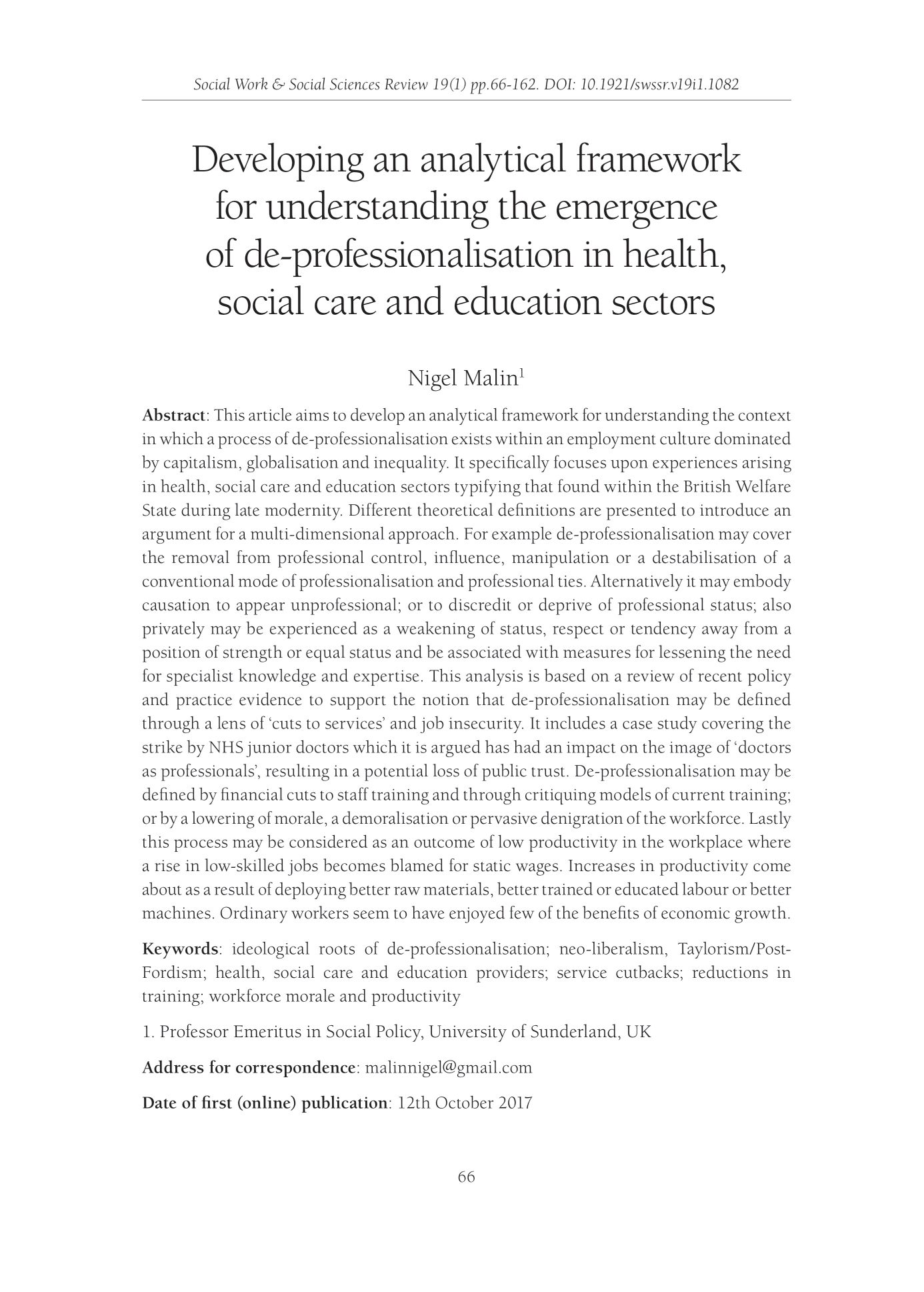Developing an analytical framework for understanding the emergence of de‑professionalisation in health, social care and education sectors
This article aims to develop an analytical framework for understanding the context in which a process of de-professionalisation exists within an employment culture dominated by capitalism, globalisation and inequality. It specifically focuses upon experiences arising in health, social care and education sectors typifying that found within the British Welfare State during late modernity. Different theoretical definitions are presented to introduce an argument for a multi-dimensional approach. For example, de-professionalisation may cover the removal from professional control, influence, manipulation or a destabilisation of a conventional mode of professionalisation and professional ties. Alternatively, it may embody causation to appear unprofessional; or to discredit or deprive of professional status; also
privately may be experienced as a weakening of status, respect or tendency away from a position of strength or equal status and be associated with measures for lessening the need for specialist knowledge and expertise. This analysis is based on a review of recent policy and practice evidence to support the notion that de-professionalisation may be defined through a lens of ‘cuts to services’ and job insecurity. It includes a case study covering the strike by NHS junior doctors which it is argued has had an impact on the image of ‘doctors as professionals’, resulting in a potential loss of public trust. De-professionalisation may be defined by financial cuts to staff training and through critiquing models of current training; or by a lowering of morale, a demoralisation or pervasive denigration of the workforce. Lastly, this process may be considered as an outcome of low productivity in the workplace where a rise in low-skilled jobs becomes blamed for static wages. Increases in productivity come about as a result of deploying better raw materials, better trained or educated labour or better machines. Ordinary workers seem to have enjoyed few of the benefits of economic growth.
